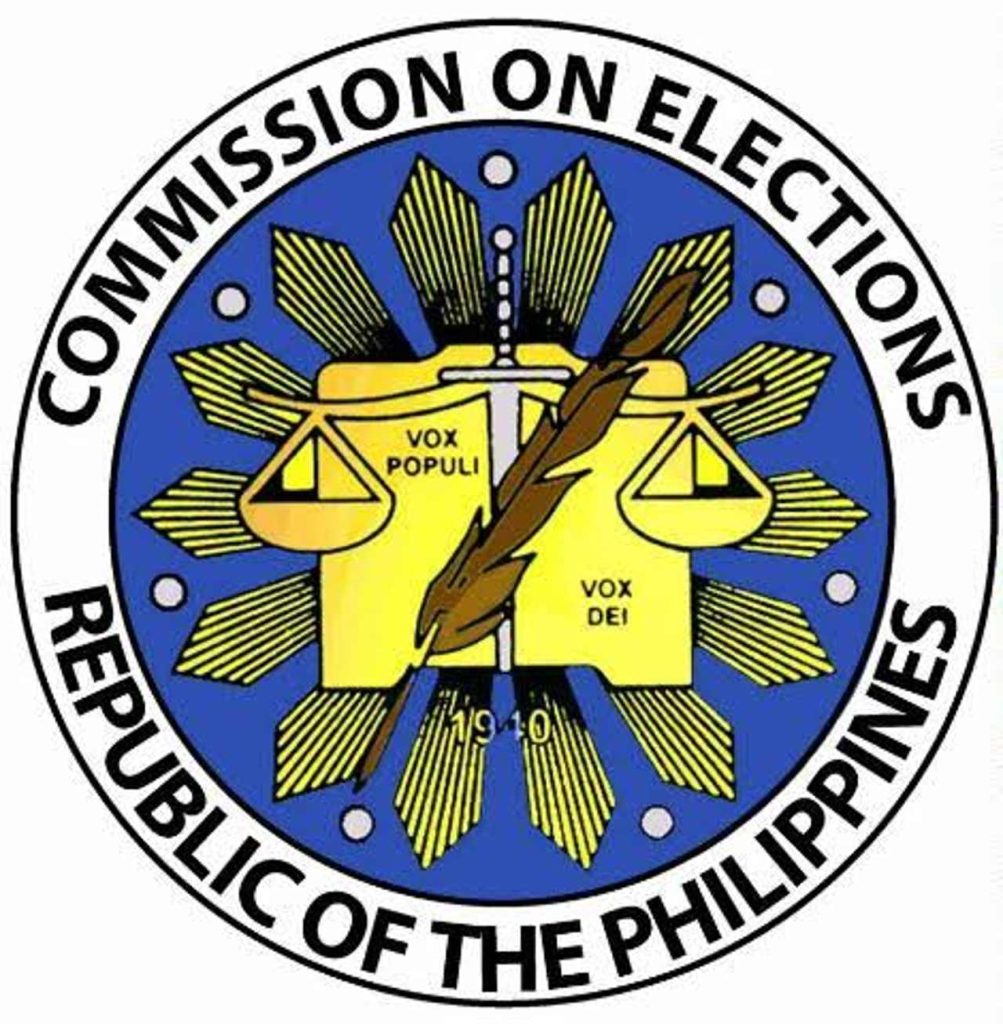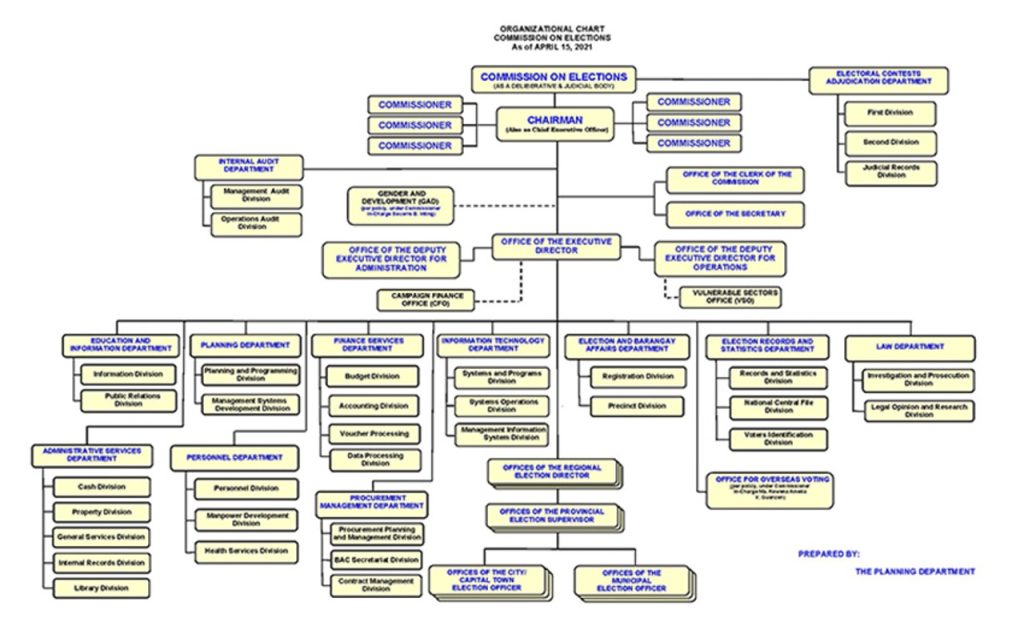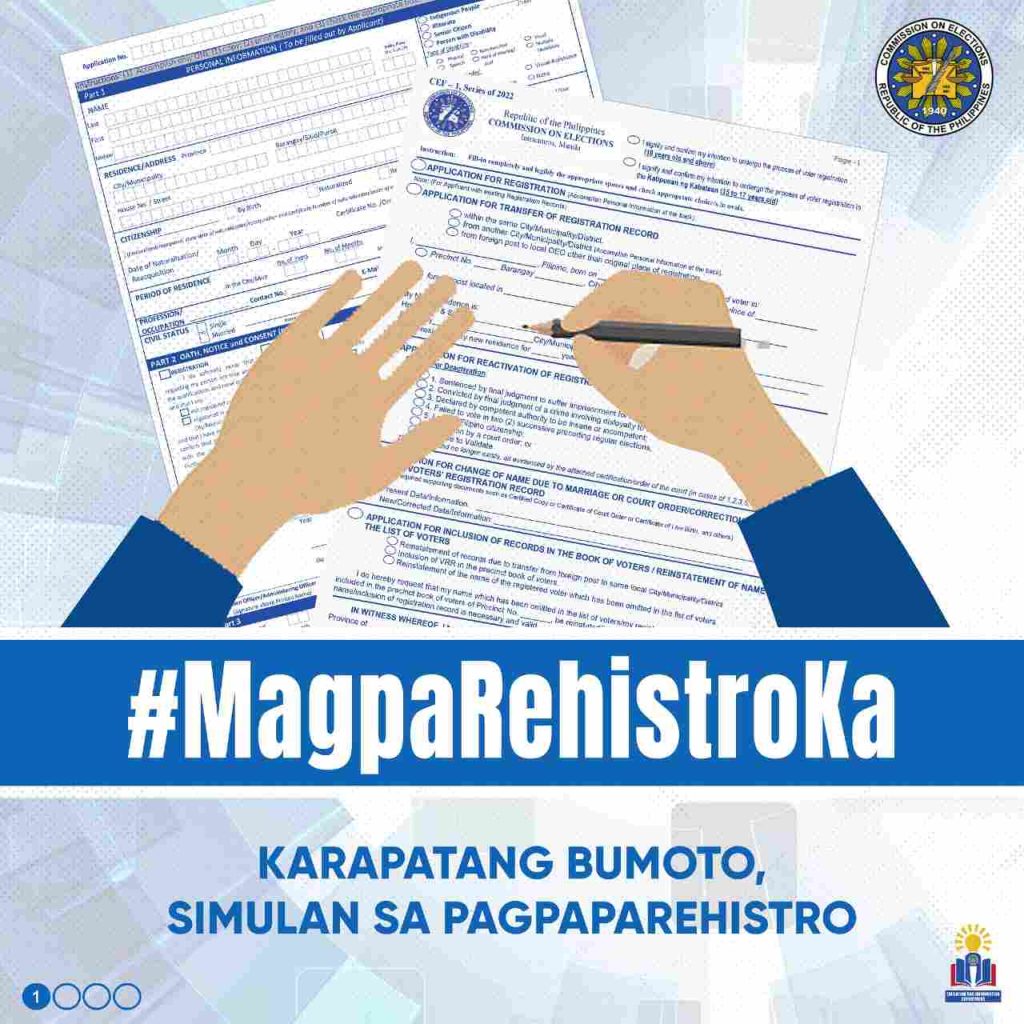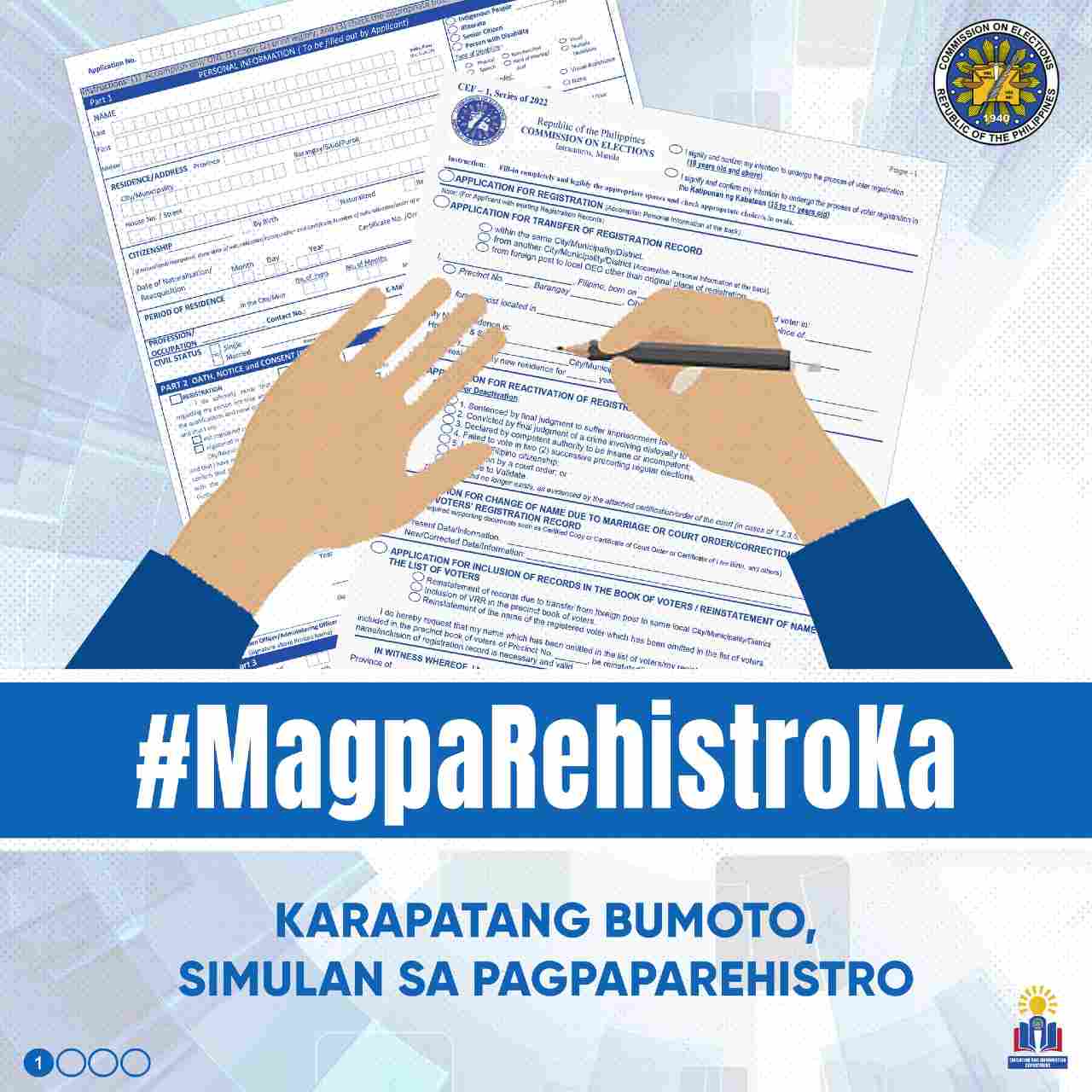The Commission on Elections (COMELEC) is a Philippine government institution, originally established by virtue of Constitutional amendment, in an attempt to uphold and protect the country’s hard-earned democracy through free, fair, and credible elections. In its capacity as a constitutional body, the COMELEC serves the public by overseeing and managing the electoral systems and processes and by protecting the rights of the public to participate in the free selection of public officials who will then serve them through their respective government offices.
The COMELEC is also mandated by law to maintain the integrity of elections. This includes regulating the timing and distribution of cash assistance particularly before the elections, which is important in maintaining a fair electoral environment. In doing so, the commission allows the citizens to make informed and independent choices at the polls while it facilitates the non-biased distribution of essential social services, contributing to fair and democratic governance for the protection of the well-being of the Filipino people.
What is COMELEC?
COMELEC stands for Commission on Elections, a government agency in-charge of the electoral procedures and everything related to maintaining a fair and safe electoral process in the country. Founded in 1940, it is an independent body that operates without any interference from the executive, legislative, and judicial branches of government. Its primary mandate is to enforce and administer laws related to the conduct of elections, plebiscites, initiatives, and referendums. This independence is what helps the COMELEC maintain its integrity as a commission as well as the integrity of the electoral process without being affected by political influence or bias.
As an independent body, the staff and personnel assigned under this department are also carefully selected. The selection process is generally based on merit and qualifications, and is governed by constitutional provisions that require each applicant to be of proven competence, integrity, and independence from political affiliations. Additionally, the commission and its personnel operate under strict regulations that prohibit any political activity to ensure that they keep their autonomy from the executive, legislative, and judicial branches of government.
History
COMELEC was established in 1940 as an independent constitutional body to ensure free and fair elections in the Philippines. Prior to its creation, supervision over elections was vested in the Executive Bureau under the Department of Interior. The 1940 amendment to the 1935 Constitution created COMELEC, composed of a chairman and two members, to take over the election-related functions of the secretary of interior. The 1973 Constitution later enlarged COMELEC’s membership from three to nine members. Throughout its history, COMELEC has continuously sought to modernize and uphold democratic integrity through initiatives like the 2007 introduction of Automated Election Systems and recent advancements in biometric and blockchain technologies.
COMELEC Logo

The COMELEC logo incorporates the following distinct elements that symbolize its mission and values:
- Shield and Radiating Lines: At the center of the logo is a circular shield with a series of radiating lines, symbolizing the protection and defense of the democratic processes and the sovereignty of the Filipino people. The radiating lines can also signify the far-reaching influence of the electoral process throughout the nation.
- Two Scales: Superimposed on the shield are two balanced scales, which represent fairness, justice, and equality in the electoral process. The scales highlight the importance of impartiality in the commission’s role in overseeing elections.
- Vox Populi and Vox Dei: The two scales are labeled with the Latin phrases “Vox Populi” (Voice of the People) and “Vox Dei” (Voice of God). This signifies the principle that the will of the people, as expressed through democratic elections, is also the will of a higher power, underscoring the sanctity and moral weight of the electoral process.
- Quill and a Sword: A quill and a sword is featured between the scales. The quill represent intellect and the power of each brushstroke that you make during the elections, while the sword symbolizes the enforcement of law and order.
- Seal of the Republic of the Philippines: Surrounding the central elements is a blue circle with the words “COMMISSION ON ELECTIONS” at the top and “REPUBLIC OF THE PHILIPPINES” at the bottom, establishing the identity and national authority of the COMELEC.
These elements collectively represent the COMELEC’s mission to conduct fair, free, and orderly elections, ensuring that the will of the people is accurately and justly reflected in the governance of the Philippines.
Mission
The COMELEC conducts its operations and carries out its mandate under the guidance of their mission statement:
“To manage the conduct of credible electoral exercises to always reflect the genuine will of the Filipino people in an efficient and effective manner.”
Vision
The goal is to achieve the vision the commission has set for itself, which reads,
“We enhance the Filipino voting experience through inclusive, equitable, and modernized electoral processes.”
Core Values
In pursuit of this mission, the COMELEC, as a constitutional body, shall be guided by the highest standard of the following values:
- integrity
- honesty
- accountability
- impartiality, and
- transparency
The COMELEC also claims that the personnel and staff are driven by the values of respect, teamwork, and achievement.
Performance Pledge
The COMELEC commits to serving the public as follows:
- With integrity and efficiency
- From Monday to Friday, 8 AM to 5 PM
- By prioritizing the enforcement of election laws and
- To protect the citizens’ rights associated with the electoral process
- To address inquiries and concerns about their services
- By encouraging communication via their contact numbers or website
- All requests will be handled in accordance with legal standards
- Assistance can be sought at the nearest COMELEC office.
- The commission is also focused on enhancing voter education to empower citizens about their voting rights
- To protect the security of the people’s votes
- To achieve clean, honest, and meaningful elections.
Powers and Functions
The expanded COMELEC is equipped with enhanced powers and functions as outlined by the Constitution and relevant laws. Its key responsibilities include:
- Enforcing and managing all laws related to elections, plebiscites, initiatives, referendums, and recalls.
- Exercising exclusive jurisdiction over election-related contests and appellate jurisdiction over municipal and barangay election disputes.
- Resolving various election-related issues, such as polling place locations, election official appointments, and voter registration.
- Collaborating with law enforcement and military agencies, with presidential consent, to ensure orderly and credible elections.
- Registering political parties and organizations that meet specific criteria, including presenting their platforms.
- Initiating legal actions regarding voter inclusion or exclusion and investigating violations of election laws.
- Proposing measures to Congress aimed at reducing election spending and preventing electoral fraud.
- Recommending disciplinary actions against any deputized personnel who violate COMELEC directives.
- Providing comprehensive reports on election conduct to the President and Congress.
Organizational Structure

The COMELEC operates under the leadership of a Chairman and Commissioners who form the policymaking body responsible for establishing electoral guidelines. The commission can convene as a whole or in divisions to efficiently handle election cases.
1. Management
The Chairman serves as the Chief Executive, supported by an Executive Director responsible for policy implementation and administration, and two deputies focusing on administration and operations.
2. Central Office
The central office comprises twelve departments, including the following:
- Administrative Services Department (ASD)
- Election and Barangay Affairs Department (EBAD)
- Electoral Contests Adjudication Department (ECAD)
- Education and Information Department (EID)
- Election Records and Statistics Department (ERSD)
- Finance Services Department (FSD)
- Law Department
- Personnel Department
- Planning Department
- Information Technology Department (ITD)
- Internal Audit Department
- Procurement Management Department (PMD)
Other offices include the:
- Office of the Secretary of the Commission (ComSec)
- Office of the Clerk of the Commission
- Office for Overseas Voting (OFOV)
3. Field Office
Each region has a Regional Election Director overseeing provincial and municipal activities. Provinces have Provincial Election Supervisors, while each city or municipality is managed by an Election Officer, aided by Election Assistants, to oversee local electoral processes.
Benefits
The establishment of the commission has brought several seevices and benefits to the country’s democratic process, including the following:
- COMELEC ensures the conduct of free, fair, and credible elections, which is essential for maintaining public trust in the electoral system.
- The commission enforces election laws and regulations, promoting accountability and transparency among political candidates and parties.
- It enhances voter education and participation, empowering citizens to engage actively in the electoral process.
- It provides a structured framework for the registration and voting process, which helps facilitate a more inclusive democracy where every eligible citizen has the opportunity to exercise their right to vote.
Overall, the establishment of COMELEC has strengthened the foundations of democracy in the Philippines by simply being around to offer its services.
Coverage
The COMELEC serves a wide range of beneficiaries, including the following:
- The Filipino electorate, which includes all eligible voters across the nation: By overseeing the registration process and ensuring access to polling places, COMELEC helps facilitate the participation of citizens in elections, thereby empowering them to voice their opinions and influence government decisions.
- Political parties and candidates: By providing a level playing field through the enforcement of election laws and regulations, the commission ensures that all candidates have an equal opportunity to campaign and be elected based on their merits, rather than on unfair advantages.
- Election service personnel, including teachers and volunteers appointed for electoral duties: These people get to earn extra through compensation and benefits paid in exchange for their service and contributions to the democratic process while also ensuring their safety during elections.
Programs and Services
The COMELEC offers a variety of programs and services aimed at promoting fair and transparent electoral processes in the Philippines. These initiatives include:
1. Voter Registration

COMELEC manages the registration of voters, ensuring that all eligible citizens can participate in elections through regular and satellite registration efforts.
2. Voter Education
The commission conducts educational campaigns to inform voters about their rights and responsibilities, helping them make informed decisions during elections.
- Partnership with DSWD specifically targeting beneficiaries of the Pantawid Pamilyang Pilipino Program (4Ps).
- Voter Education Campaigns in BARMM to support the first parliamentary elections in the Bangsamoro Autonomous Region in Muslim Mindanao (BARMM),
- Voter Education and Registration Fairsto make it easier for young people to engage in the electoral process.
- Community-Based Programs
- Media and Outreach Efforts
3. Election Management
COMELEC oversees the entire electoral process, including the appointment of election officials, the determination of polling places, and the counting of votes.
- Voter Registration Automation to make it easier for citizens to register and update their information
- Automated Election System which enhances the speed and accuracy of the electoral process while reducing human error.
- Training Programs for Election Officials, including Board of Election Inspectors (BEIs) and Boards of Canvassers (BOCs), to ensure they are well-equipped with the knowledge and skills necessary for efficient election management.
- Election Monitoring and Compliance to ensure that all electoral activities adhere to established guidelines.
- Public Transparency Initiatives, including the publication of precinct election returns.
- Collaboration with Law Enforcement to monitor polling places and address any incidents of electoral violence or fraud.
4. Legal Assistance
The commission provides legal support and indemnification for election service personnel, protecting them from legal liabilities arising from their duties.
5. Monitoring and Enforcement
COMELEC is responsible for enforcing election laws, investigating violations, and prosecuting election-related offenses to maintain electoral integrity.
6. Political Party Registration
The commission registers political parties and organizations, ensuring they meet the necessary requirements to participate in elections.
7. Accessibility Initiatives
COMELEC implements programs to establish accessible polling places for persons with disabilities and senior citizens, ensuring their right to vote is upheld.
COMELEC and Cash Assistance Programs
In addition to its electoral responsibilities, COMELEC plays a significant role in the administration of cash assistance programs, especially during election periods. The commission’s regulations are crucial in ensuring that public funds are not misused for political gain.
8. Disbursement Regulations
During election campaigns, COMELEC imposes a ban on the disbursement of public funds to prevent any undue influence on voters. However, exceptions are made for essential social services, such as cash assistance for vulnerable populations.
9. Recent Approvals
For instance, COMELEC recently approved the Department of Social Welfare and Development’s (DSWD) request to distribute cash assistance to rice retailers affected by price ceilings, despite the ongoing election period. This decision underscores COMELEC’s commitment to balancing electoral integrity with the urgent needs of the population.
These programs and services collectively contribute to a more inclusive and trustworthy electoral process, reinforcing the democratic principles in the Philippines.
Video: COMELEC’s Message for the Youth
The youth is not only the country’s hope for the future, but the future itself. This is a reminder shared by the COMELEC Chairman in the video entitled, “Take It From the Chair.” Watch this video from COMELEC and learn more about how the youth are shaping democracy and the importance of their participation in the electoral process.
Summary
COMELEC serves as the pillar and the government’s watchdog for keeping Philippine democracy. Its main tasks include ensuring fair electoral processes, managing cash assistance programs during elections, protecting the rights and welfare of Filipino voters, maintaining the integrity of elections, and facilitating essential social services, allowing the people to enjoy a just and equitable society with the leader of their choice. By understanding these things, it is easier for the people to appreciate the contributions of the COMELEC to the democratic governance and the well-being of the Filipino people.
Contact Information
To learn more about the programs and services of the COMELEC, you may reach out to them via the following:
Commission on Elections (COMELEC)
Main Office Address: Palacio del Gobernador Bldg., Gen. Luna St., Intramuros, Manila
Contact Number: 8521-5390
Email Address: ocgemg@comelec.gov.ph
Official website: https://comelec.gov.ph/?r=home
Official Social Media Pages
Facebook: https://web.facebook.com/comelec.ph/
Tiktok: https://www.tiktok.com/@comelec?_t=8oxB14c0uEZ&_r=1
Youtube: https://youtube.com/@comelec?si=IwZOum0iEJDYSMtP
